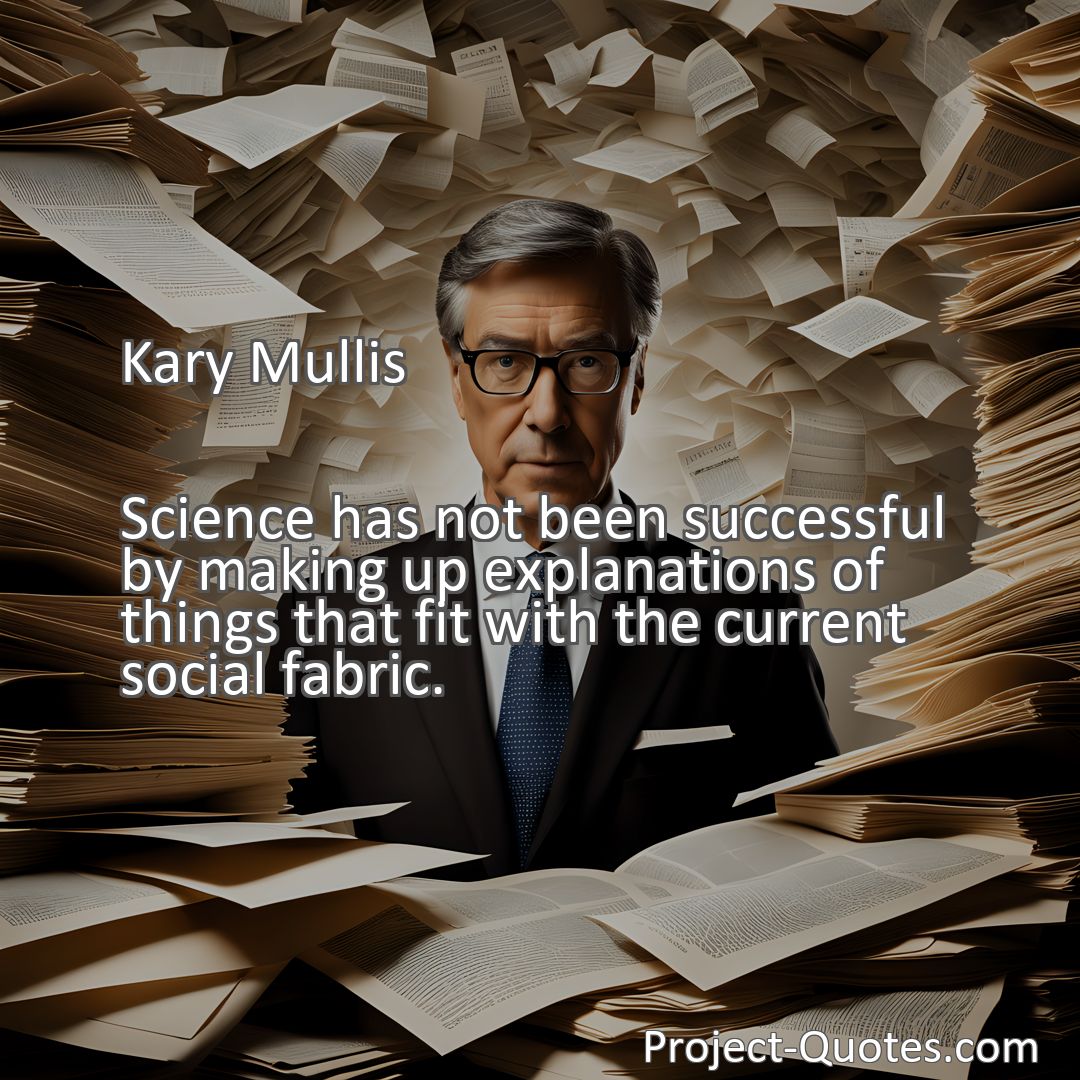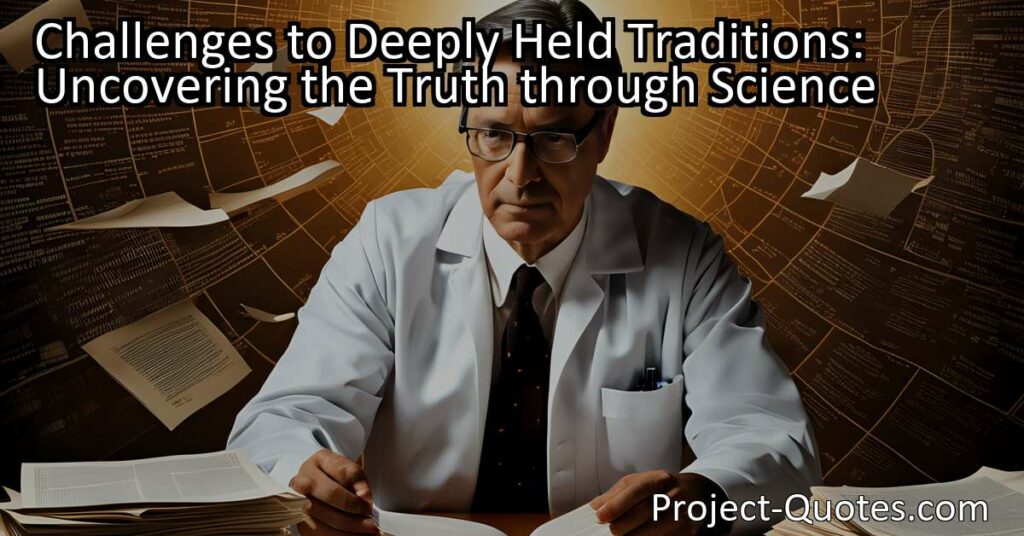Kary Mullis
Challenges to Deeply Held Traditions: Uncovering the Truth through ScienceScience is a journey of curiosity and discovery, aimed at uncovering the truth even if it challenges existing beliefs. Kary Mullis emphasizes that true scientific progress comes from embracing skepticism, questioning prevailing ideas, and pushing the boundaries of knowledge, regardless of the deeply held traditions and social norms.
Table of Contents
Have you ever wondered how scientists come up with explanations for the mysteries of the world? Well, according to Kary Mullis, a renowned American biochemist, they definitely don’t make them up just to fit in with society’s beliefs. In fact, Mullis argues that the success of science lies in its ability to uncover the truth, even if it challenges existing social norms and beliefs.
Science, at its core, is about exploring the unknown, seeking explanations for natural phenomena, and discovering the underlying principles of the universe. It is a journey of curiosity and discovery, where scientists aim to uncover the truth, regardless of how it aligns with current social fabric. Mullis suggests that science does not rely on artificial explanations that are convenient or fit cultural narratives; instead, it seeks to uncover the objective reality of the world we live in.
One of the most significant characteristics of scientific inquiry is its reliance on empirical evidence. Scientists make observations, perform experiments, and gather data to support their hypotheses and theories. This evidence-based approach ensures that scientific explanations are rooted in verifiable facts rather than personal opinions or subjective experiences.
By basing their explanations on empirical evidence, scientists challenge the validity of long-held beliefs and theories. They are not afraid to question the status quo and propose alternative explanations. Mullis emphasizes that true scientific progress comes from embracing skepticism and critically examining existing ideas to uncover new truths.
Take, for example, the groundbreaking work of Copernicus and Galileo during the Renaissance period. Society at that time believed in geocentrism, the idea that the Earth was the center of the universe. However, Copernicus, based on his observations and mathematical calculations, proposed the heliocentric model, which stated that the sun, not the Earth, was at the center of our solar system. Though his idea challenged the prevailing social fabric, it was later verified by Galileo’s telescopic observations, leading to a paradigm shift in our understanding of the cosmos.
Similarly, in the field of medicine, scientific advancements have often challenged social and cultural norms. The discovery and widespread acceptance of germ theory revolutionized our approach to hygiene and disease prevention. Before this breakthrough, illnesses were often attributed to superstitions or divine punishment. However, through rigorous research and experimentation, scientists like Louis Pasteur and Robert Koch demonstrated the role of microorganisms in causing diseases. This discovery fundamentally changed society’s understanding of illness and led to significant improvements in public health.
Throughout history, scientific progress has been driven by individuals who were willing to question prevailing beliefs and challenge the societal status quo. Mullis encourages scientists to think critically, push boundaries, and not be constrained by the current social fabric. This attitude of openness and intellectual exploration is what has allowed science to flourish and vastly expand our understanding of the world.
While it is undoubtedly important to respect cultural values and social norms, it is equally crucial to acknowledge that scientific progress requires freedom from dogma. Mullis advocates for the pursuit of knowledge based on evidence and reasoning, even if it challenges deeply held traditions and beliefs. In doing so, he recognizes that society’s understanding of the world is not fixed but constantly evolving as we uncover new information through scientific inquiry.
However, it is essential to note that the rejection of unverified ideas should not be mistaken for dismissing all ideas that are not in line with the current scientific paradigm. In fact, the scientific method encourages skepticism and welcomes new hypotheses. Science thrives on the exploration of alternative explanations supported by empirical evidence and rigorous testing. As Mullis argues, the objective is not to make up explanations that fit with current social fabric, but to uncover the truth through rational investigation and logical reasoning.
In conclusion, Kary Mullis reminds us that science is not about accepting explanations for the sake of convenience or social acceptance. Instead, it is a continuous journey towards uncovering the truth through empirical evidence and critical thinking. The success of science lies in its ability to challenge existing beliefs, question conventional wisdom, and provide verifiable explanations for the mysteries of the universe. Mullis’ insight serves as a reminder that true scientific progress comes from embracing skepticism, thinking independently, and ultimately pushing the boundaries of human knowledge.
I hope this quote inspired image brings you hope and peace. Share it with someone who needs it today!


